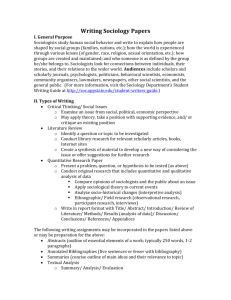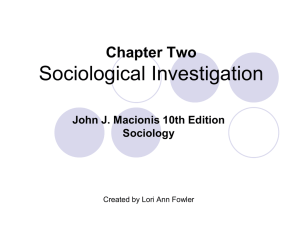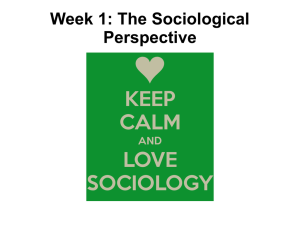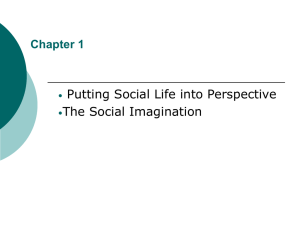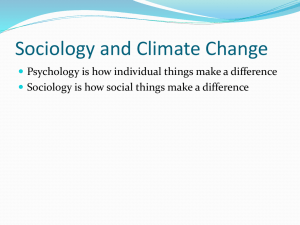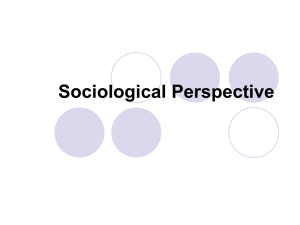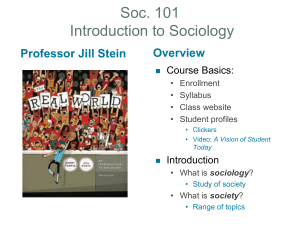The Later Years
advertisement
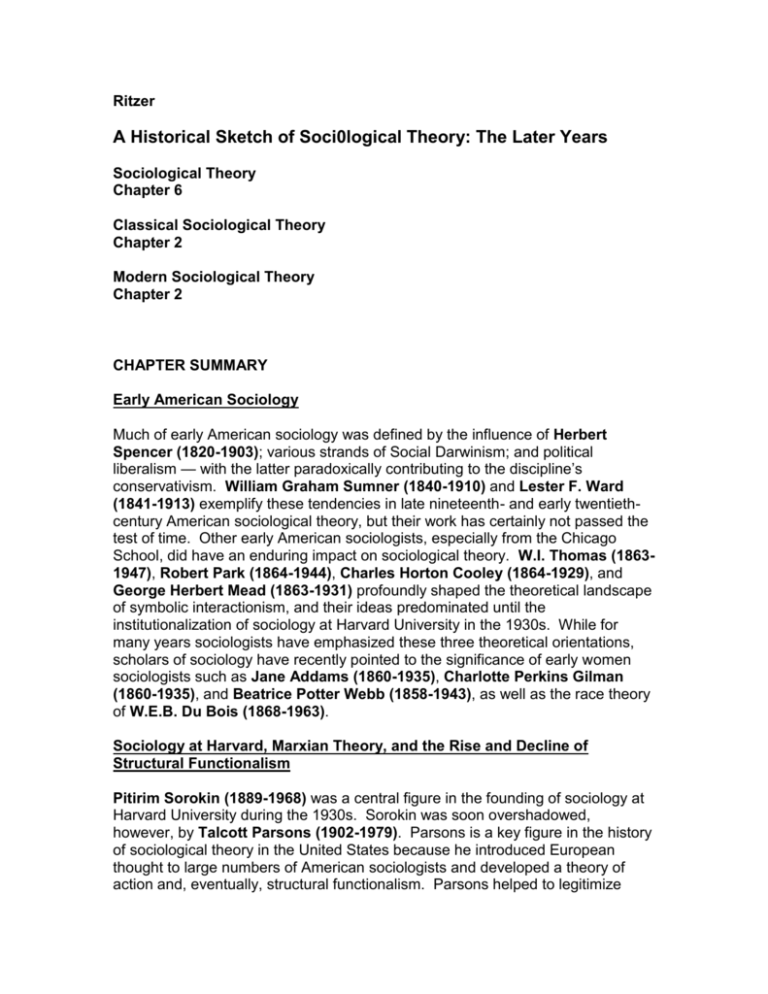
Ritzer A Historical Sketch of Soci0logical Theory: The Later Years Sociological Theory Chapter 6 Classical Sociological Theory Chapter 2 Modern Sociological Theory Chapter 2 CHAPTER SUMMARY Early American Sociology Much of early American sociology was defined by the influence of Herbert Spencer (1820-1903); various strands of Social Darwinism; and political liberalism — with the latter paradoxically contributing to the discipline’s conservativism. William Graham Sumner (1840-1910) and Lester F. Ward (1841-1913) exemplify these tendencies in late nineteenth- and early twentiethcentury American sociological theory, but their work has certainly not passed the test of time. Other early American sociologists, especially from the Chicago School, did have an enduring impact on sociological theory. W.I. Thomas (18631947), Robert Park (1864-1944), Charles Horton Cooley (1864-1929), and George Herbert Mead (1863-1931) profoundly shaped the theoretical landscape of symbolic interactionism, and their ideas predominated until the institutionalization of sociology at Harvard University in the 1930s. While for many years sociologists have emphasized these three theoretical orientations, scholars of sociology have recently pointed to the significance of early women sociologists such as Jane Addams (1860-1935), Charlotte Perkins Gilman (1860-1935), and Beatrice Potter Webb (1858-1943), as well as the race theory of W.E.B. Du Bois (1868-1963). Sociology at Harvard, Marxian Theory, and the Rise and Decline of Structural Functionalism Pitirim Sorokin (1889-1968) was a central figure in the founding of sociology at Harvard University during the 1930s. Sorokin was soon overshadowed, however, by Talcott Parsons (1902-1979). Parsons is a key figure in the history of sociological theory in the United States because he introduced European thought to large numbers of American sociologists and developed a theory of action and, eventually, structural functionalism. Parsons helped to legitimize grand theory in the United States, and produced many graduate students who carried his ideas to other departments of sociology in the U.S. The rise of structural functionalism to a dominant position in the 1940s and 1950s led to the decline of the Chicago School. While structural functionalism was gaining ground in the United States, the Frankfurt school of critical theory was emerging in Europe. With the rise to power of Adolf Hitler and the National Socialists in Germany, many of the critical theorists fled to the United States, where they came into contact with American sociology. Thinkers such as Max Horkheimer (1895-1973), Theodor Adorno (1903-1969), and Herbert Marcuse (1898-1979) propounded a kind of Marxian theory that was heavily influenced by the work of G.W.F. Hegel (1770-1831), Max Weber (1864-1920), and Sigmund Freud (1856-1939). Much of the critical theorists’ work, however, was neglected until the 1960s. During the 1940s, ‘50s, and ‘60s, many criticisms and challenges to structural functionalism emerged. Radical sociologists such as C. Wright Mills (19161962) and conflict theorists attacked structural functionalism for its grand theory, purported political conservatism, inability to study social change, and lack of emphasis on social conflict. Other theorists, such as Erving Goffman (19221982) and George Homans (1910- ), developed dramaturgical analysis and exchange theory, respectively. The sociological phenomenology of Alfred Schutz (1899-1959) prompted a great deal of interest in the sociology of everyday life, which is exemplified by Harold Garfinkel’s (1917- ) ethnomethodology. The Rise and Fall of Marxian Theory During the 1970s and 1980s, a number of scholars revived Marxist perspectives in studies of historical sociology and economic sociology, while others began to question the viability of Marxian theory given the atrocities committed in the name of Marxism and the collapse of the Soviet Union and other Marxist regimes. Ritzer and Goodman suggest that neo-Marxian theory will see something of a renaissance as a consequence of the inequalities of globalization and the excesses of capitalism. Late Twentieth-Century Social Theory In the last thirty years or so, a number of theoretical perspectives have emerged. First, and perhaps most significant, is the rise of feminist theory. Second, structuralism, post-structuralism, and post-modernism gained considerable ground — most notably in the work of Michel Foucault (1926-1984). Third, in the United States, many sociological theorists have developed an interest in the micro-macro link. Fourth, the debate over the relationship between agency and structure — which developed mainly in Europe — has made its way into sociological theory in the U.S. Finally, in the 1990s a number of sociological thinkers have taken an interest in theoretical syntheses. Early Twenty-First-Century Theory While the future of sociological theory is unpredictable, a number of perspectives have come to the forefront in recent years. Multicultural social theory, for example, has exploded in the past 20 years. Post-modernism continues to be influential, though some post-post-modernists are making headway. Finally, theories of consumption are shifting the focus of sociology away from its productivist bias and toward consumers, consumer goods, and processes of consumption.

